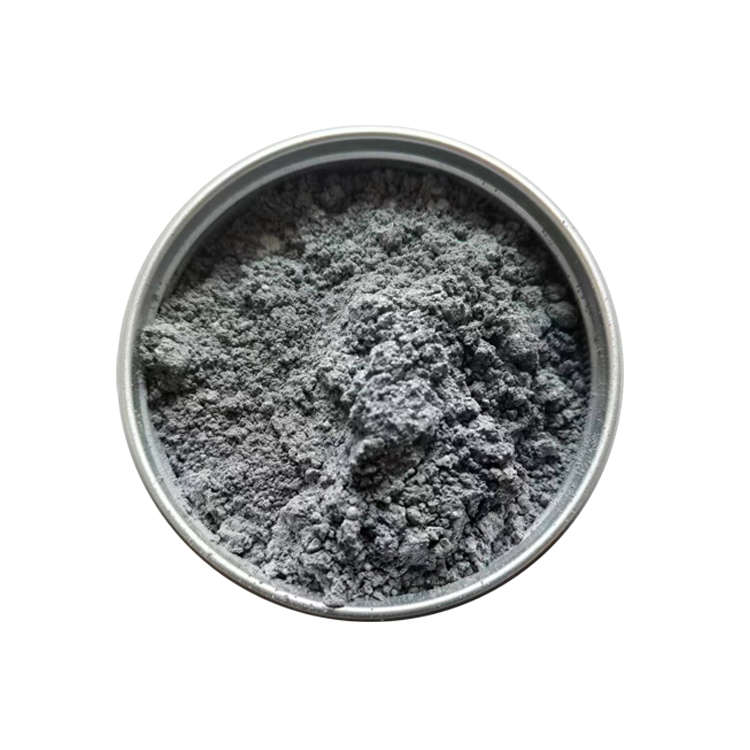Why Aluminium Powder Produces Gas?
2025 / 11 / 27As Asian and global markets increasingly rely on high-performance metallic pigments, understanding the stability of aluminum powder becomes crucial. One of the most common and easily overlooked issues is the generation of gases (expansion) during use or storage. This article will explain why this occurs and how manufacturers can avoid costly reactions.
What Causes Aluminium Powder to Produce Gas?


Aluminium powder is reactive by nature. When conditions are not properly controlled, it may generate gas — typically hydrogen, which can cause swelling, bubbling, pressure buildup, or coating defects.
Studies show that pure aluminium reacts with water to produce hydrogen gas, especially when protective oxide layers are damaged or contaminated (Source: Journal of Materials Chemistry A).
Typical symptoms include:
-
Unexpected can swelling
-
Foaming or bubbling in slurry/paint
-
Viscosity increase
-
Metallic odor from hydrogen release
Understanding the chemical mechanism is the key to prevention.
Common Cause 1 — Reaction With Water
Even small amounts of moisture can trigger a chemical reaction:
2Al + 6H₂O → 2Al(OH)₃ + 3H₂↑
Why It Happens
-
High moisture content in the aluminium powder
-
Solvents that absorbed water during storage
-
Poor packaging or humid environment
Prevention
-
Maintain moisture levels below industry-recommended limits (typically <0.1%).
-
Use high-quality, sealed packaging.
-
Store powder in cool, dry conditions.
Common Cause 2 — Presence of Acidic Substances
Acidic contaminants accelerate water–aluminium reactions by dissolving the oxide layer.
Typical Acid Sources
-
Turpentine with acidic impurities
-
Acidic additives in coatings
-
Residual acids in cleaning solvents
Prevention
-
Choose neutral or slightly alkaline additives.
-
Test raw materials for acidity before production.
-
Avoid acidic storage environments.
Common Cause 3 — Insufficient Surface Protection
Uncoated aluminium powder is more reactive because its oxide film can be incomplete or thin.
When This Happens
-
Powder with large specific surface area
-
Mechanical damage during production
-
Storage oxidation
Best Solution: Use Coated Aluminium Powder
Professional coatings (resin-coated or silica-coated) form a stable barrier that reduces contact with water and acid.
Authoritative data:
Coated aluminium powder can reduce hydrogen generation by up to 80–95% compared to uncoated grades (Source: Industrial & Engineering Chemistry Research Journal).
Application / Comparison — Coated vs. Uncoated Aluminium Powder
| Property | Uncoated Aluminium Powder | Resin-Coated Aluminium Powder | Silica-Coated Aluminium Powder |
|---|---|---|---|
| Water resistance | Low | High | Very high |
| Gas generation | High risk | Strongly reduced | Extremely low |
| Stability in storage | Moderate | High | Very high |
| Suitable for water-based systems | ❌ | ✔️ Limited | ✔️ Excellent |
Conclusion:
For any system involving humidity, long storage, or acidic ingredients, coated aluminium powder is the safer and more stable choice.
Frequently Asked Questions
Q1. Why does my aluminium slurry expand during storage?
Likely due to moisture contamination or acidic additives that triggered hydrogen release.
Q2. Can water-based systems safely use aluminium powder?
Yes — but only silica-coated or specially passivated aluminium powder.
Q3. Do coated powders affect metallic brightness?
Minimal impact. Modern coating technology preserves reflectivity while boosting stability.
Q4. How do I reduce aluminium powder defects in my formulation?
Control moisture, avoid acids, use coated grades, and check solvent purity.
Call to Action
Hydrogen expansion in aluminium powder is preventable with the right material choice and system control. At ZHANGQIU METALLIC PIGMENT CO., LTD, we specialize in producing resin-coated and silica-coated aluminium powders with industry-leading stability for coatings, inks, and industrial applications.
For technical support or quotations, contact us:
info@zqmetallic.com
https://zqmetallic.com/

